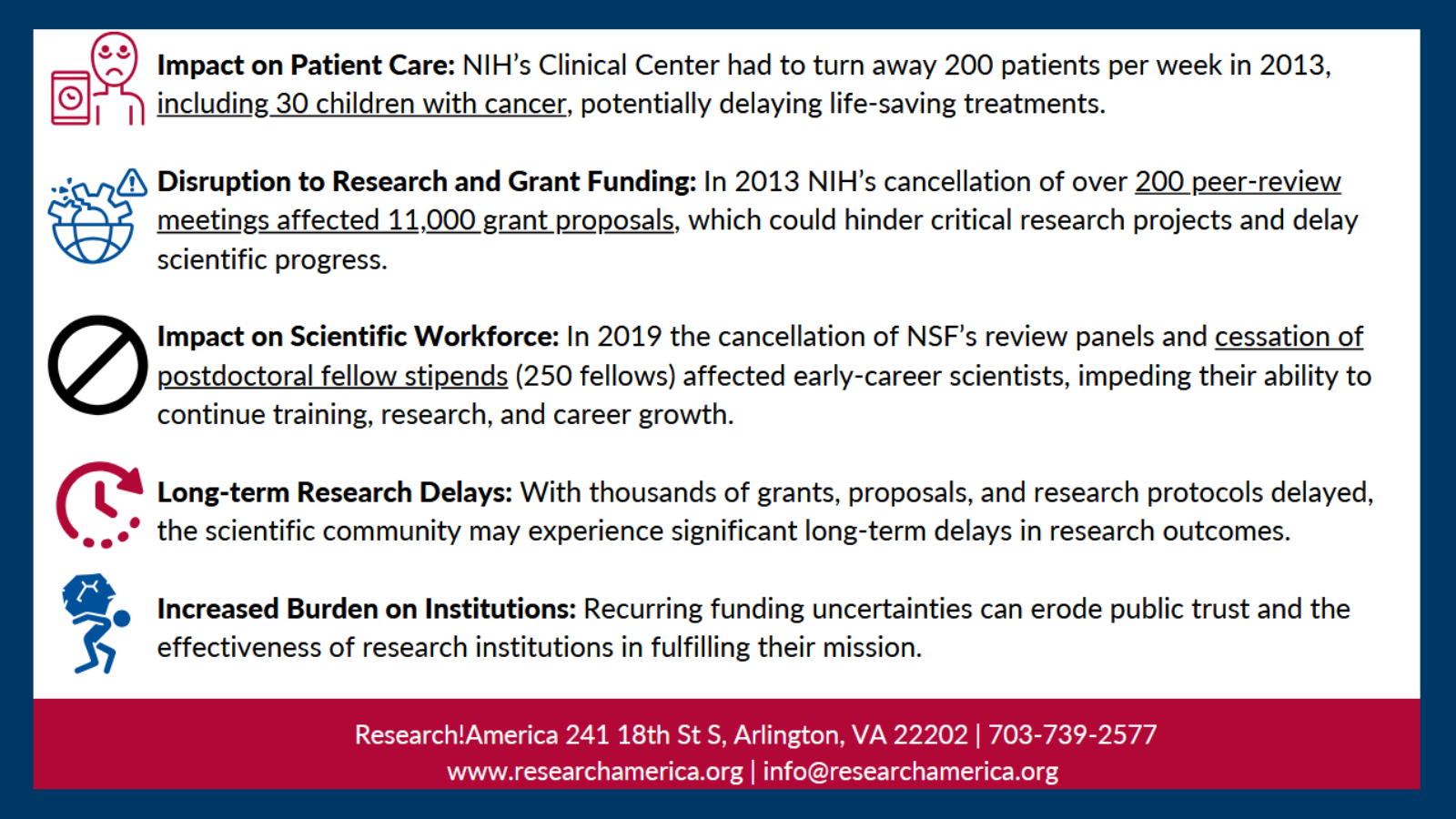FY26 Budget Standoff: What’s At Stake for Patients, Researchers
If a deal on fiscal year 2026 appropriations is not reached by Tuesday (September 30) at midnight, the government will shut down.
A sticking point of negotiations is the Affordable Care Act's (ACA) enhanced premium tax credits, which are due to expire at the end of the year. Without these subsidies, analysts warn that "out-of-pocket premium payments for ACA Marketplace enrollees are projected to increase by over 75 percent on average."
Earlier this month, the House passed a Continuing Resolution (CR) along mostly party lines that would keep the government funded at current levels through November 21st. That CR has been rejected by Senate Democrats, primarily for failing to address the healthcare subsidies.
Our friends at Research!America offer a helpful primer (see graphic below) on CRs and government shutdowns, including potential implications for patient care, research projects, and grant funding. Among the many healthcare impacts is the inability of the NIH Clinical Center to admit new patients unless it is medically necessary (current patients will continue to receive care) or to initiate new clinical trials.

